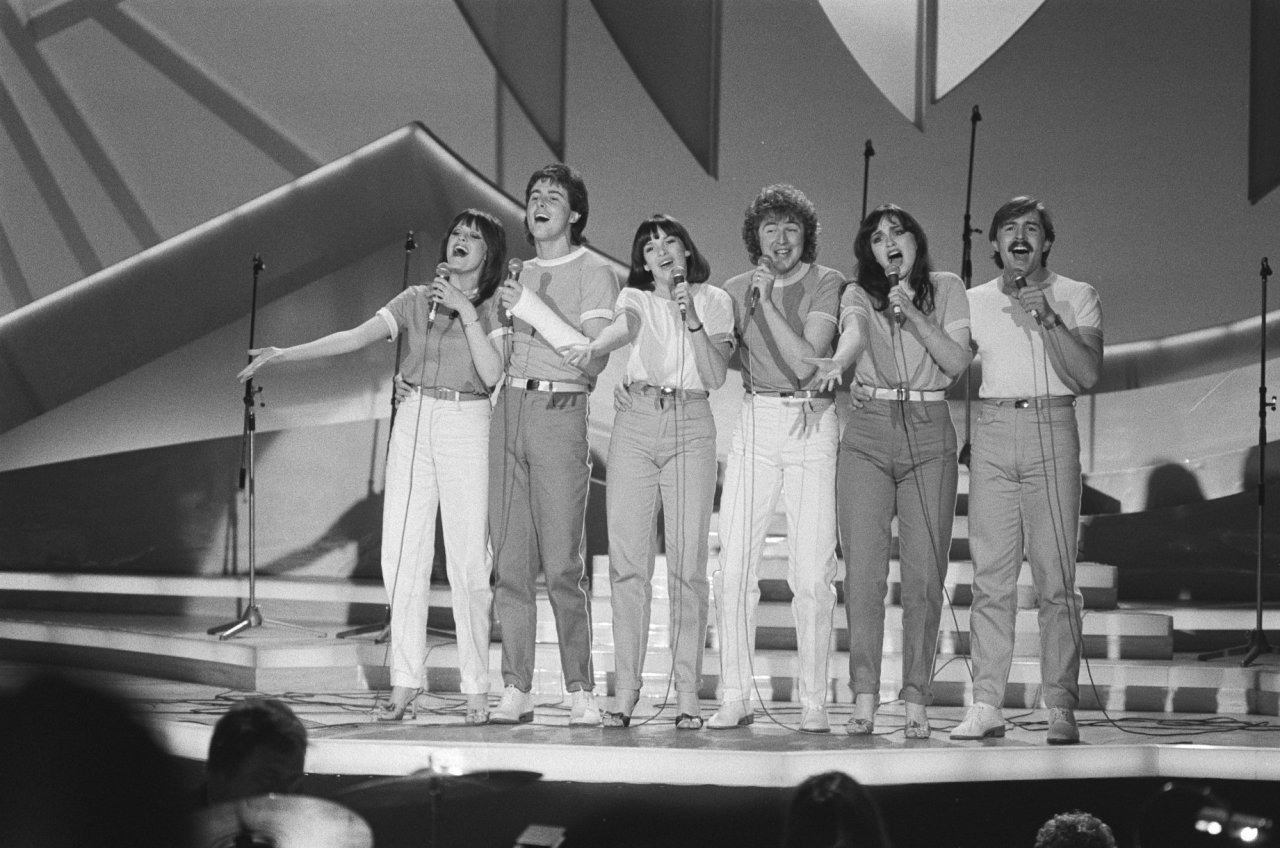Although it officially began in 1956, Eurovision didn’t really get started until 1965…
For a long time we Brits thought of pop music as a fairly Anglo-American business. Turns out there was a whole continent of schlager and rococo-style ballideering going on out there. Unfortunately, a lot of it was lost in translation until, in 1965, an 18-year old French sweetheart named France Gall took to the stage for Luxembourg, performing a galloping, Serge Gainsbourg-penned number, Poupée de Cire, Poupée de Son. A resounding win, its beat-influenced yé-yé sound made for a stark-contrast to previous entries and the pop-driven Eurovision as we know it was born.
An awful lot of copying goes on…
Not to be outdone by our friends across the channel, the UK responded in 1967 with the objectively insane Puppet On a String. Penned Bill Martin and Phil Coulter (who also wrote Cliff Richard’s 1968 entry Congratulations) and performed by Dagenham girl Sandie-Shaw, its pan-European stylings would miraculously claim the top spot for the UK, despite meeting dismissal from Shaw herself: “I hated it from the very first oompah to the final bang on the big bass drum.”
No one understood the point of Eurovision better than Sir Terry Wogan…
We may have lost veteran broadcaster Sir Terry Wogan back in January, but the world of Eurovision lost him several years earlier when in 2008 he stepped down from a thirty-five year stint as the UK’s host. While the Swedish producer of this year’s concert, Christer Björkman, recently claimed Wogan “totally spoiled Eurovision” by mocking the acts in his commentary, Sir Tez’s quick wit (“Who knows what hellish future lies ahead?” he said at the opening of the 2007 competition. “Actually, I do. I’ve seen the rehearsals”) endeared him to an annual audience of millions. And his favourite ever entry? Waterloo by ABBA….
Which the UK awarded a big fat nil point back in 1974…
Ah.
It gave us the meat dress before Gaga did…
Back in 1981, UK manufactured ABBA-ites Bucks Fizz colour-coordinated their way to skirt-ripping glory, much to dismay of visual artist and Ludus frontperson Linder Sterling. So much so, when Ludus took to the stage at Manchester’s Hacienda nightclub the following year, Linder performed in a dress made of discarded chicken meat, pulling it aside at one point to reveal a large dildo. “Bucks Fizz had just won the Eurovision Song contest,” she would later describe. “At the end of their song the men pulled up girls’ skirts, and that ticked off an outrage in me. Oh no, I thought, it’s still going on. I was a vegetarian, I got meat from the Chinese restaurant, all the discarded entrails. I went to a sex shop and bought a large dildo. I didn’t tell anybody about it.”
Of course, there have been fallow patches…
That Bucks Fizz victory lead to a (perhaps deserved) sixteen year stretch without a win for the UK. In 1996, a nation’s hopes were pinned on Australian singer Gina G and, despite becoming a bone-fide school disco classic of knee-skidding proportion (as well as the last Eurovision entry to top the UK charts), the song failed to win over the judges and the fallow patch continued until…
… The following year!
In 1997, Katrina and the Waves enjoyed the second UK landslide in a week when their entry Love Shine a Light won by a record margin just a few days after Tony Blair’s New Labour swept to power. While both careers would take a stumble in the years following (declining record sales/illegal warfare), it would remain a defining achievement, albeit one that marks the beginning of the second great Eurovision fallow patch that continues to this day (and, let’s face it, 2017).
It’s inclusive…
In 1998, Israeli entry Dana International became the first transgender person to perform at the contest. While her appearance wasn’t without controversy, not least in her home country, she swept to victory, proving that Eurovision is open to all…
Even if you are a group of latex foam monsters…
No, not Blue! Finland’s Lordi with their 2006 winning song Hard Rock Hallelujah.
The left-field can be great…
In 2008, France selected Sébastien Tellier, one of the country’s most celebrated songwriters, to perform at the competition…
But sometimes the best entries are the ones that could have been…
… Which is almost what happened in 2007, when Morrissey was reportedly in talks to represent the UK. “We were in discussions with him and other artists, and he had been genuinely interested, but the timing wasn’t right,” said a BBC Eurovision spokesperson. Don’t rule it out completely though. Not only was his video for Ringleader of the Tormentors lead single, You Have Killed Me, a clear Eurovision homage, the Pope of Mope is once quoted as once saying: “My fascination with the show had an almost religious aspect.”
And finally…
No Eurovision round-up would be complete without Conchita Wurst, the bearded Austrian drag-queen who swept to victory back in 2014 despite notable criticism from Vladimir Putin; the Russian President seemingly only just aware that the contest might be popular among the continent’s gay community. Nothing gets past you, eh, Vlad.
Credits
Text Matthew Whitehouse
